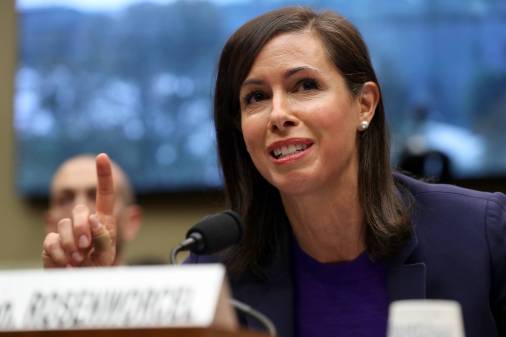Midwestern schools, libraries missing out on millions in broadband funds from FCC

MADISON, Wis. — Schools and libraries in several midwestern states are failing to use tens of millions of dollars in federal funds set aside to get them connected to the internet, according to Gary Rawson, federal programs coordinator for Mississippi’s Department of Information Technology Services.
In a presentation here at the National Association of State Technology Directors’ Midwestern Region seminar, Rawson highlighted data from the Federal Communications Commission’s E-Rate program showing that nearly 11 percent of funds awarded to schools and libraries in Iowa, Kansas, Michigan, Minnesota, Missouri, Nebraska, Ohio, Oklahoma and Wisconsin went unclaimed in the 2014 fiscal year.
In all, that adds up to more than $38.7 million dollars that the FCC committed as part of the program that schools and libraries failed to use to build out networks or other types of telecom programs.
“Why are we leaving these dollars on the table?” Rawson asked. “We don’t need to be.”
In particular, he broke down numbers from a school district in one state — which he chose to leave anonymous to avoid any potential embarrassment — showing that it failed to claim just over $701,000 of a total of more than $778,000 in committed E-Rate funds.
“This is a troubling number for any state,” Rawson said.
Rawson noted that there a variety of reasons that these funds might get lost in the shuffle. He pointed out that a school might plan to revamp its network and request the funding to do so through the program, then decide against it, leaving the money in limbo.
But he added that some of the discrepancy might come down to simple errors in filling out forms, calling the process “an exercise in project management.”
“You need to constantly be on top of the forms, because if you miss any one step, you don’t get the funding,” Rawson said.
Accordingly, he challenged the state IT staffers in attendance to “take this data and verify what’s going on in your state” to identify these areas of waste.
[Read more: As E-Rate deadline looms, what’s next for schools?]
But beyond simply identifying schools and libraries that need to improve when it comes to managing this money, Rawson feels there’s a variety of ways that state governments can make the process easier from the top down.
He stressed that every state needs a dedicated “state E-Rate coordinator,” to manage all the program applicants and vendors working with the schools and libraries on projects funded by E-Rate. But he added that those coordinators are often tasked with a variety of other responsibilities, limiting their effectiveness, a trend he hopes to see reversed.
He believes that the coordinator has real value in the state, since the FCC is often reluctant to deal with individual school districts or libraries when there’s some sort of problem with their applications for funding.
“They like having one throat to choke, so to speak,” Rawson said. “When there’s an audit, who do they come to?”
Rawson also encouraged state IT workers to “provide technical expertise” to schools and libraries as they draft E-Rate applications to increase their chances to earning funding.
“Are they qualified to design networks or do procurements? Some are, some are not,” Rawson said. “That can lead to dirty procurements and a loss of funding. This is where the state can step up and help.”
Indeed, he believes that the more that the state helps its own schools and libraries, the less they have to rely on consultants, who can often have financial motivations of their own besides helping applicants craft the most efficient projects.
“I don’t have anything against consultants, I just can’t stand them,” Rawson said. “Some of them are not motivated by giving good service, but lining their pockets by pushing certain products. That’s taking money that should be going to school, and state governments need to step up and take their place.”
He also encouraged states to keep E-Rate in mind as they design their “master contracts” and procurement processes to help grease the wheels for projects funded through the program.
“You need to make sure those master contracts provide E-Rate eligible services, and let the E-Rate calendar determine the procurement calendar,” Rawson said. “E-Rate is not forgiving and the calendar is not either.”
Rawson stressed that these types of changes can have big benefits for state governments beyond getting schools and libraries more connected, providing ample incentives for states to heed his advice.
“State governments benefit from the schools and libraries pulling this fiber infrastructure to them,” Rawson said.
Contact the reporter at alex.koma@statescoop.com, and follow him on Twitter @AlexKomaSNG.





